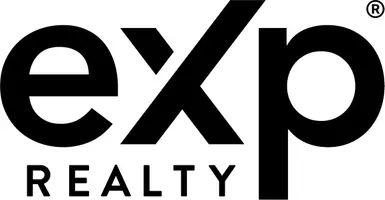20 Red Flags in a Real Estate Agent
20 Red Flags in a Real Estate Agent
In the vast and intricate world of real estate, choosing the right agent can make all the difference in the transaction process. To guide you through this crucial decision-making process, we've created a comprehensive list of 20 red flags that signal you might be working with the wrong real estate agent. Whether you're a buyer or seller, it's essential to recognize these warning signs before entering into a partnership that could significantly impact your real estate journey.
- Avoiding Honest Pricing Conversations:
One of the most critical aspects of a real estate transaction is pricing. If your agent shies away from having an open and honest conversation about the price of your property, it could be a red flag that greatly impacts you.
- Uncomfortable with Tough Conversations:
Effective communication is key, especially when it comes to receiving feedback or discussing challenging topics like pricing. If your agent avoids difficult conversations, it might hinder the overall success of your partnership.
- Lack of Strategy and Feedback:
A successful real estate partnership involves ongoing discussions about strategy, market feedback, and potential adjustments. If your agent isn't actively engaging in these conversations, it could impact the overall effectiveness of your selling strategy.
- Unresponsiveness:
In a fast-paced real estate market, responsiveness is crucial, especially from your agent. If your agent consistently takes too long to respond, it could lead to missed opportunities or delayed decisions.
- Friend or Agent?:
The delicate balance between personal relationships and professional obligations can be challenging. Hiring a friend who happens to be an agent may lead to complications, as personal ties may interfere with objective decision-making.
- Lack of Initiative:
A proactive agent is essential. If your agent is merely an order-taker, rather than offering valuable advice and suggestions, it could be a sign that they lack initiative or extensive market knowledge.
- Accessibility Issues:
Communication is key, and accessibility plays a significant role. If you're constantly struggling to get in touch with your agent during business hours, it might be time to reassess the partnership.
- No Support Team:
A lack of support can hinder an agent's ability to meet your needs. Ensure your agent has a reliable support team in place to handle tasks in their absence, especially during peak seasons in the market.
- Infrequent Check-Ins:
Regular check-ins are crucial for keeping the lines of communication open. If your agent isn't proactively checking in with you on a regular basis, it could indicate a lack of commitment to you and your transaction.
- Failure to Clarify:
Real estate transactions can be complex, and your agent should be patient in explaining the process to you. If they fail to clarify things in a way that you understand, it could lead to issues in the transaction and potentially risk the sale.
- Lack of Local Knowledge:
Understanding the local market is vital. Your agent should possess in-depth knowledge of the area to provide accurate advice and insights when selling or listing your home.
- Avoiding Difficult Topics:
A successful real estate partnership requires honesty, even when it involves difficult conversations. An agent who prioritizes a friendly relationship over candid discussions might not be the right fit especially in a busy market.
- Offering Poor Guidance:
Experience plays a crucial role in offering guidance. An agent with limited experience might struggle to provide the insights needed to make informed decisions.
- Outdated Marketing Materials:
In the digital age, an online presence is essential for agents. Outdated marketing materials or a lack of social media engagement could hinder your property's visibility to other agents and potential buyers.
- Lack of a Network:
Networking is a powerful tool in real estate, as in many other industries. An agent with a robust network can tap into various resources to enhance the chances of a successful transaction.
- Lack of Honesty:
Honesty is non-negotiable. An agent who isn't forthright may lead to misguided decisions and potential complications down the line. This could even risk the success of your transaction.
- Lack of Dedication:
Real estate demands dedication. A part-time agent might struggle to provide the commitment needed for a successful transaction.
- Mismatched Goals:
Ensuring your goals align with your agent's is crucial for a cohesive partnership. Misalignment can lead to frustration and delays in all stages of the process.
- Poor Negotiation Skills:
Negotiation is an art, and your agent's ability to negotiate effectively can impact your success. Weak negotiation skills might result in missed opportunities.
- Response to Actual Buyers:
Test your agent's responsiveness by posing as a potential buyer. If they fail to engage promptly, it could be an indication of how they handle valuable leads.
Conclusion:
Choosing the right real estate agent is a critical decision that can significantly impact the success of your transaction. By being vigilant and recognizing these 20 red flags, you can navigate the real estate landscape with confidence, ensuring a seamless and successful experience. Whether you're buying or selling, prioritize a partnership that aligns with your goals and expectations for a smoother journey in the dynamic world of real estate.
Recent Posts











